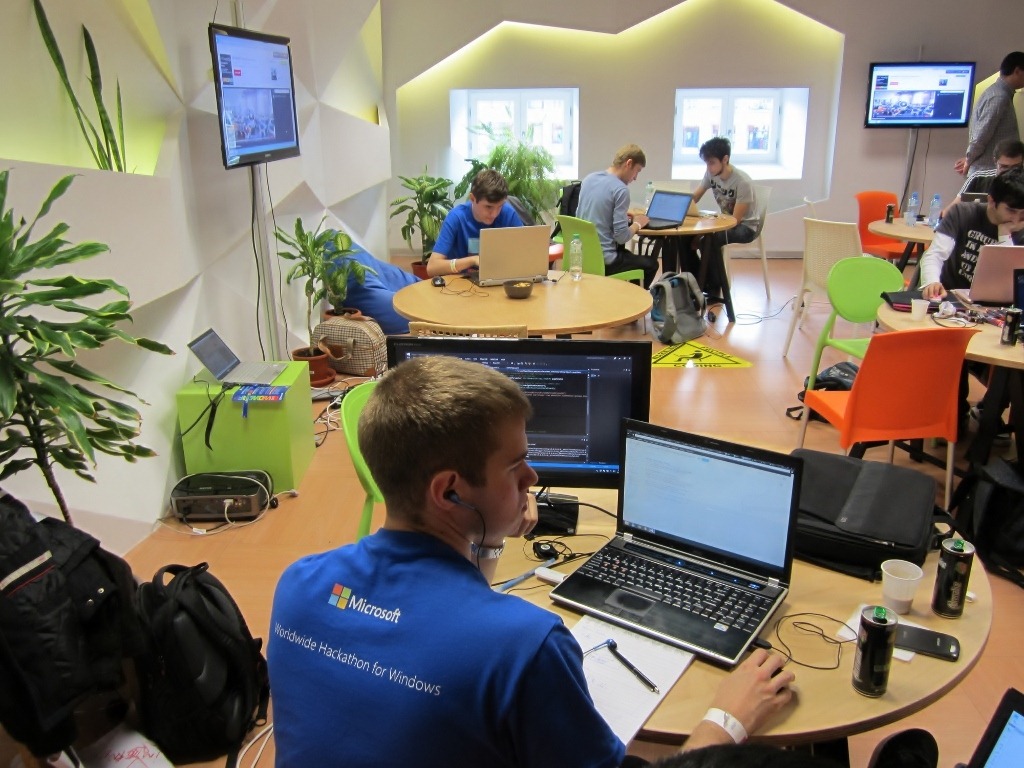There are so many self-nominated candidates for Europe’s Silicon Valley, it’s getting kind of silly.
Obvious ones such as Berlin, Amsterdam, London and Stockholm are contenders. Not so obvious candidates such as Vienna and Barcelona … who knows? And of course, we’ll always have Paris.
But what about the low-cost, high-talent countries of Eastern Europe? There’s an amazing amount of reportage floating around the Internets about the relative merits of some of Europe’s poorer, yet promising, nations, especially Romania.
Quick … what’s the fastest-growing economy in Europe? Germany? Hah! France? Nope. Both are projected to have GDP growth below 2 percent. Romania’s GDP, by comparison, is projected to grow at a flashy 4 percent, recording the highest growth rate among European countries, according to The Economist. Ireland comes next, with 3.5-percent GDP growth, followed by Latvia at 3.1 percent.
Yes, Europe’s mega-economies such as Germany and France use Romania and other former Soviet Bloc neighbors mostly for near-sourcing. That doesn’t rule out a Second World nation evolving into sort of the China of Europe, with world-class talent at discount rates.
ZDNet has an in-depth post about Romania, focusing on its tech center of Cluj-Napoca (pronounced kloo-zh nah-po-kah), where a bunch of international companies have set up shop. Why Cluj? Because wages are less there even than Bucharest, according to the post.
Dispatches is dedicated to expats, but as someone who’s spent a lot of time among the dysfunction of Bosnia, Macedonia, Kosovo and Croatia, I’m not sure I can recommend everyone rush to a former Communist state. (I know … most of the tech action is in East Berlin.) That said, if you’re starting a digital company, Romania makes a lot of sense in terms of making your capital go farther without sacrificing quality. Because there are some crazy talented people in Romania available at rates far less than Northern European economies. And certainly, some of the largest tech companies on the planet are leading the way.
Here’s why:
 A junior iOS or Android developer has a take-home pay starting at 450 euros ($480) per month, or about $6,000 per year. A senior engineer can make up to 3,000 euros ($3,200) a month, or $36,000 per year in a European country where the median household income is about $7,000.
A junior iOS or Android developer has a take-home pay starting at 450 euros ($480) per month, or about $6,000 per year. A senior engineer can make up to 3,000 euros ($3,200) a month, or $36,000 per year in a European country where the median household income is about $7,000.
 Of the 100,000 strong pool of IT and digital talent, 98 percent speak English and many are also fluent in German and Hungarian, according to ZDNet and Brainspotting, a Bucharest-based IT talent firm.
Of the 100,000 strong pool of IT and digital talent, 98 percent speak English and many are also fluent in German and Hungarian, according to ZDNet and Brainspotting, a Bucharest-based IT talent firm.
A number of companies have set up shop in Cluj including Endava, a London-based IT firm, and Hewlett-Packard, according to Brainspotting. A slew of global tech companies are in Bucharest including Microsoft, SAP, Oracle, IBM and Dell.
Brainspotting has its annual IT & C Talent Map/SlideShare report posted on Linkedin, and it’s worth a post in and of itself. It opened my eyes because, well, I know nothing about Romania other than revolutionaries shot the old Communist leader Ceaușescu twice … once for real, then propped him back up and shot him a second time while TV cameras rolled. That, and I had in the back of my mind that I could find good PHP developers there for Dispatches, our new expat-focused media business/corporate services firm.
As dozens of online pubs have documented, Bucharest has a lot going for it including high speed fiber-optic internet connections, low operating costs and overhead. Rents and utilities are far cheaper than, say, Berlin or Amsterdam. And, of course, there’s all that home grown talent discounted 40 percent at least over Western Europe.
One of the reasons Romania likely won’t become Silicon Valley is it now has a developer shortage, and is looking at Greece as a source of talent! Brainspotting has at least 40 positions listed for people with every kind of skill, from C++ programmers needed to build power plant automation systems to a PHP developer for a marketing company in Switzerland.
Another reason is, there’s no capital and while Romania is famous for vampires, there are certainly no Unicorns. The Peter Theils and Andreesson Horowitzes of the world don’t have any reason to invest there yet. But there are signs that’s about to change, because publicly traded corporations can’t resist the lure of cutting expenses by moving to low-wage countries with proven talent.
Late last year, Oracle announced it’s closing its UK software support center, moving it to (drum roll) Bucharest, where the American tech giant is considering consolidating all its Europe call centers.
Co-CEO of Dispatches Europe. A former military reporter, I'm a serial expat who has lived in France, Turkey, Germany and the Netherlands.















